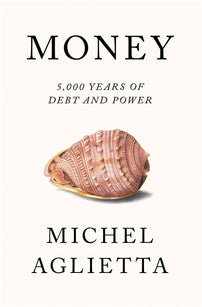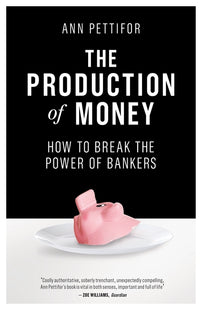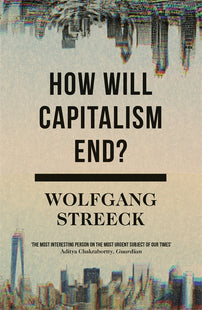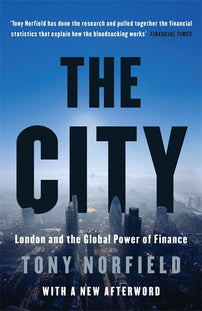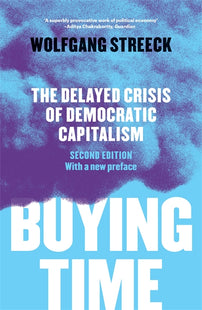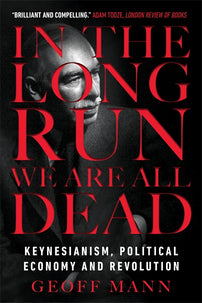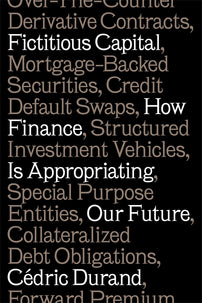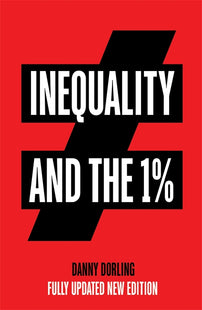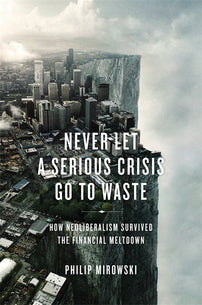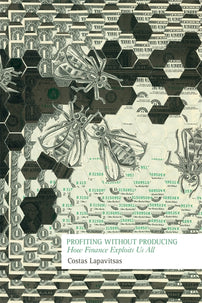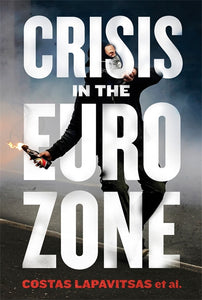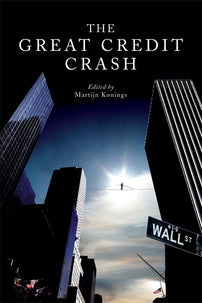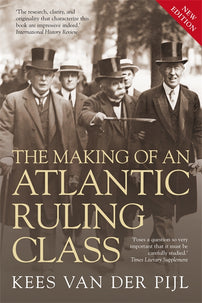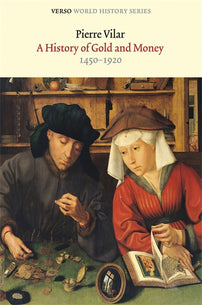10 Years Since the Financial Crisis: A Reading List
20 books on money, markets, and the financial crisis and its aftermath.
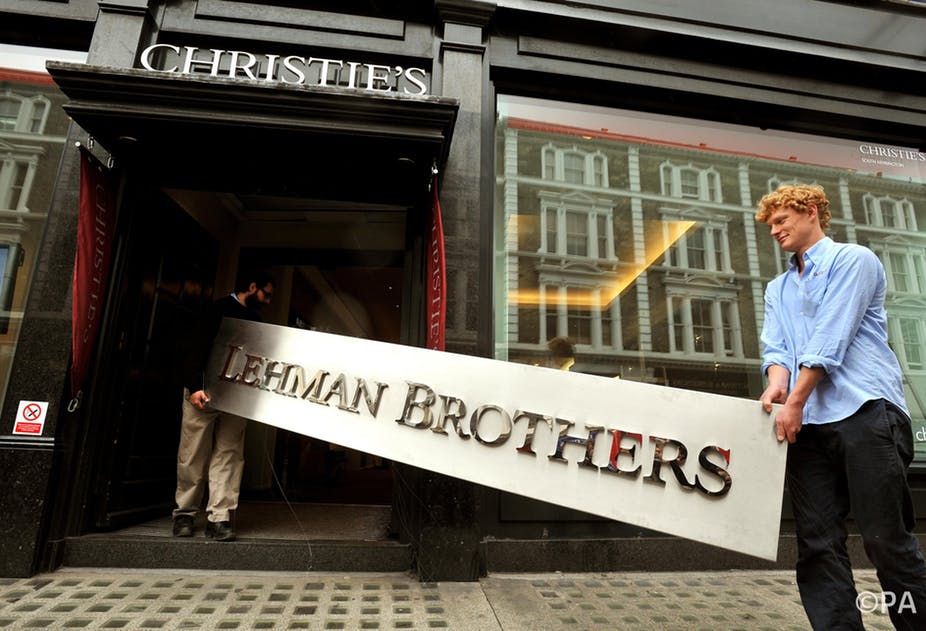
2018 marks ten years since the financial crisis of 2008, in the wake of which governments across the world bailed out banks and imposed crippling austerity regimes on working people. From Occupy Wall Street to the Wisconsin labor revolt, and from the international movement of the squares to the Arab Spring, the years that followed saw mass resistance to the global ruling class assault on the living conditions of the working majority and the social safety nets on which working people rely.
Here we present a reading list which engages with the causes and ramifications of the 2008 financial crisis itself, how leftists understand money and markets, and the history of banking and the global financial system, including the recently released Money: 5,000 Years of Debt and Power by Michel Aglietta, on sale for 40% off until Sunday, November 18 at 11:59pm EST.
After the 2008 financial crisis, what saved finance, and the Western economy, was fiscal and monetary stimulus – an influx of money, created ad hoc. It was a strategy that raised questions about the unexamined nature of money itself, an object suddenly revealed as something other than a neutral signifier of value. Through its grip on finance and the debt system, money confers sovereign power on the economy. If confidence in money is not maintained, crises follow. Looking over the last 5,000 years, Michel Aglietta explores the development of money and its close connection to sovereign power. This book employs the tools of anthropology, history and political economy in order to analyse how political structures and monetary systems have transformed one another. We can thus grasp the different eras of monetary regulation and the crises capitalism has endured throughout its history.
[book-strip index="2" style="buy"]In this accessible, brilliantly argued book, leading political economist Ann Pettifor explains in straightforward terms history’s most misunderstood invention: the money system. Pettifor argues that democracies can, and indeed must, reclaim control over money production and restrain the out-of-control finance sector so that it serves the interests of society, as well as the needs of the ecosystem.
[book-strip index="3" style="buy"]In How Will Capitalism End?, the acclaimed analyst of contemporary politics and economics Wolfgang Streeck argues that the world is about to change. The marriage between democracy and capitalism, ill-suited partners brought together in the shadow of World War Two, is coming to an end. The regulatory institutions that once restrained the financial sector’s excesses have collapsed and, after the final victory of capitalism at the end of the Cold War, there is no political agency capable of rolling back the liberalization of the markets.
[book-strip index="4" style="buy"]Based on the author’s twenty years’ experience of City dealing rooms, The City is an in-depth look at world markets and revenues that exposes how this mechanism works. All big international companies—not just the banks—utilise this system, and The City shows how the operations of the City of London are critical both for British capitalism and for world finance.
[book-strip index="5" style="buy"]Tax havens, we are often told, are part of the global architecture of capitalism, providing a freedom from regulation necessary to make markets work. In this book, leading authority Richard Murphy uncovers the truth behind this lie. The fact of the matter is that this increasingly popular practice threatens the foundations of democracy, sowing mistrust and creating a regime based upon opacity.
[book-strip index="6" style="buy"]The credit crisis has pushed the whole world so far into the red that the gigantic sums involved defy understanding. On a human level, what does such an enormous degree of debt and insolvency mean? In this timely book, cultural critic Richard Dienst considers the financial crisis, global poverty, media politics and radical theory to parse the various implications of a world where man is born free but everywhere is in debt.
[book-strip index="7" style="buy"]In this new edition of a highly acclaimed book, Wolfgang Streeck revisits his recent arguments in the light of Brexit and the continued crisis of the EU. These developments are only the latest events in the long neoliberal transformation of postwar capitalism that began in the 1970s, a process that turned states away from tax toward debt as a source of revenue, and from that point into the ‘consolidation state’ of today. Central to this analysis is the changing relationship between capitalism and democracy—in Europe and elsewhere—and the advancing immunization of the former against the latter.
[book-strip index="8" style="buy"]In the ruins of the 2007–2008 financial crisis, self-proclaimed progressives the world over clamoured to resurrect the economic theory of John Maynard Keynes. The crisis seemed to expose the disaster of small-state, free-market liberalization and deregulation. Keynesian political economy, in contrast, could put the state back at the heart of the economy and arm it with the knowledge needed to rescue us. But what it was supposed to rescue us from was not so clear. Was it the end of capitalism or the end of the world? For Keynesianism, the answer is both.
[book-strip index="9" style="buy"]In this lucid and compelling book, economist Cédric Durand offers a concise and critical introduction to the world of finance, unveiling the truth behind the credit crunch. Fictitious Capital moves beyond moralizing tales about greedy bankers, short-sighted experts and compromised regulators to look at the big picture. Using comparative data covering the last four decades, Durand examines the relationship between trends such as the rise in private and public debt and the proliferation of financial products; norms such as our habitual assumptions about the production of value and financial stability; and the relationship of all this to political power.
[book-strip index="10" style="buy"]In Inequality and the 1% leading social thinker Danny Dorling lays bare the extent and true cost of the division in our society and asks what have the superrich ever done for us. He shows that inquality is the greatest threat we face and why we must urgently redress the balance.
[book-strip index="11" style="buy"]At the onset of the Great Recession, as house prices sank and joblessness soared, many commentators concluded that the economic convictions behind the disaster would now be consigned to history. And yet, in the harsh light of a new day, we’ve awoken to a second nightmare more ghastly than the first: a political class still blaming government intervention, a global drive for austerity, stagflation, and an international sovereign debt crisis. Philip Mirowski finds an apt comparison to this situation in classic studies of cognitive dissonance. He concludes that neoliberal thought has become so pervasive that any countervailing evidence serves only to further convince disciples of its ultimate truth.
[book-strip index="12" style="buy"]What is money? Where does it come from? Who makes it? And how can we understand the current state of our economy as a crisis of money itself? In Making Money, Ole Bjerg turns these questions into a matter of philosophical rather than economic analysis. Applying the thinking of Slavoj Žižek and other scholars to mainstream economic literature, Bjerg provides a radical new way of looking at the mysterious stuff we use to buy things.
[book-strip index="13" style="buy"]Profiting Without Producing defines financialization in terms of the fundamental conduct of non-financial enterprises, banks and households. Its most prominent feature is the rise of financial profit, in part extracted directly from households through financial expropriation. Financialized capitalism is prone to crises, none greater than the gigantic turmoil that began in 2007. Using abundant empirical data, the book establishes the causes of the crisis and discusses the options broadly available for controlling finance.
[book-strip index="14" style="buy"]In this coruscating account of the first decade of the twenty-first century, Seumas Milne presents a powerful indictment of the United States, a global and corporate empire in decline. Milne also examines the causes of the credit crisis and the Great Recession, reveals the policy of humanitarian military intervention to be a failed land grab, explains the dynamo behind the roaring Chinese economy and discovers new models of society flourishing in Latin America. Brilliant, bold and always incisive, The Revenge of History is essential reading for anyone wanting to understand what has gone wrong.
[book-strip index="15" style="buy"]Crisis in the Eurozone charts a cautious path between political economy and radical economics to envisage a restructuring reliant on the forces of organized labour and civil society. The clear-headed rationalism at the heart of this book conveys a controversial message, unwelcome in many quarters but soon to be echoed across the continent: impoverished states have to quit the euro and cut their losses or worse hardship will ensue.
[book-strip index="16" style="buy"]Originally published in 2012 to wide acclaim, this updated edition includes coverage of the riots in Athens, student occupations in the UK, Quebec and Moscow, the emergence of the Occupy Movement and the tumult of the Arab Spring. BBC journalist and author Paul Mason combines the anecdotes gleaned through first-hand reportage with political, economic and historical analysis to tell the story of the networked revolution that followed the 2008 financial crisis. Why It’s Still Kicking Off Everywhere not only addresses the struggles of those years, it provides insights into the future of global revolt.
[book-strip index="17" style="buy"]Most accounts of the financial crisis beginning in 2007 and 2008 tell a story of deregulation, out-of-control markets and irresponsible speculation. But few of those works have done more than regurgitate the newspaper coverage. In contrast, The Great Credit Crash digs deeper, drawing on some of the most prominent radical analysts of the modern market to foreground the key questions that are still waiting to be answered.
[book-strip index="18" style="buy"]Meltdown is the gripping account of the financial collapse that destroyed the West’s investment banks, brought the global economy to its knees, and undermined three decades of neoliberal orthodoxy. Covering the development of the crisis from the economic front line, BBC Newsnight journalist Paul Mason explores the roots of the US and UK’s financial hubris, documenting the real-world causes and consequences from the Ford factory, to Wall Street, to the City of London.
[book-strip index="19" style="buy"]With The Making of an Atlantic Ruling Class, Kees van der Pijl put class formation at the heart of our understanding of world politics and the global economy. This landmark study dissects one of the most decisive phenomena of the twentieth century—the rise of an Atlantic ruling class of multinational banks and corporations. A new preface by the author evaluates the book's significance in the light of recent political and economic developments.
[book-strip index="20" style="buy"]For much of human history, the motive force behind war, conquest, social conflict and world exploration has been the drive to acquire gold. From the ancient world of Croesus to the wealthy dynasties of Renaissance Italy, from the earliest European explorations into Africa, America, and Asia to the gold rushes of the nineteenth century and the banking crises that lay beyond them, Pierre Vilar depicts the awesome power of avarice to structure the world in which we live. The insidious power of gold and money is the subject of this enlightening and entertaining history.
